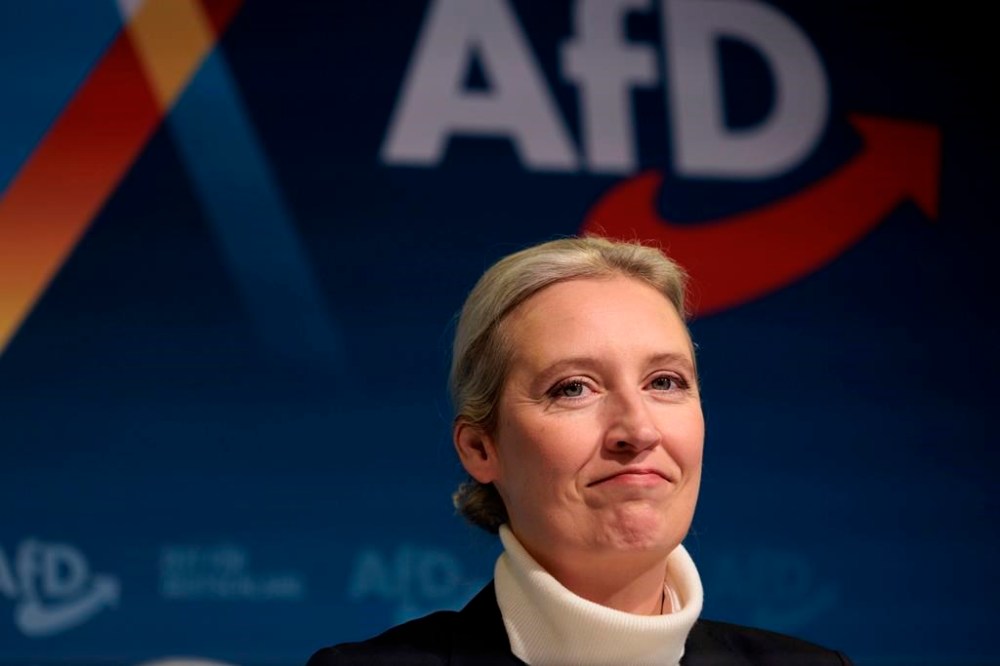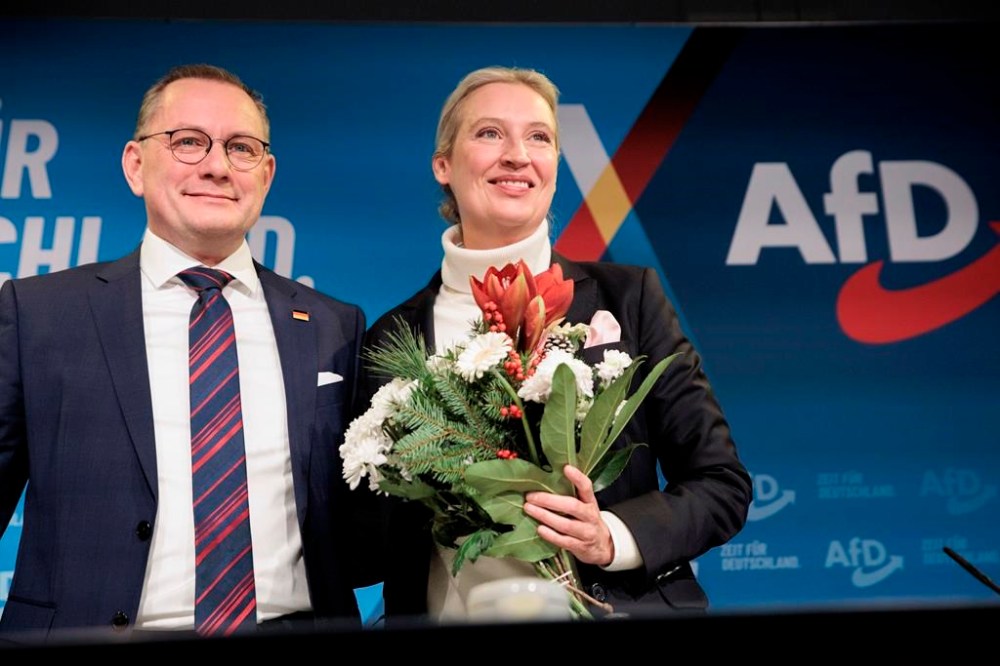Germany’s far-right AfD party nominates a candidate for chancellor in the upcoming election
Advertisement
Read this article for free:
or
Already have an account? Log in here »
To continue reading, please subscribe:
Monthly Digital Subscription
$0 for the first 4 weeks*
- Enjoy unlimited reading on winnipegfreepress.com
- Read the E-Edition, our digital replica newspaper
- Access News Break, our award-winning app
- Play interactive puzzles
*No charge for 4 weeks then price increases to the regular rate of $19.00 plus GST every four weeks. Offer available to new and qualified returning subscribers only. Cancel any time.
Monthly Digital Subscription
$4.75/week*
- Enjoy unlimited reading on winnipegfreepress.com
- Read the E-Edition, our digital replica newspaper
- Access News Break, our award-winning app
- Play interactive puzzles
*Billed as $19 plus GST every four weeks. Cancel any time.
To continue reading, please subscribe:
Add Free Press access to your Brandon Sun subscription for only an additional
$1 for the first 4 weeks*
*Your next subscription payment will increase by $1.00 and you will be charged $16.99 plus GST for four weeks. After four weeks, your payment will increase to $23.99 plus GST every four weeks.
Read unlimited articles for free today:
or
Already have an account? Log in here »
Hey there, time traveller!
This article was published 07/12/2024 (364 days ago), so information in it may no longer be current.
BERLIN (AP) — The far-right Alternative for Germany party on Saturday presented its candidate for chancellor in the country’s upcoming election.
In practice, Alice Weidel has no chance of taking the chancellery as other parties refuse to work with the populist party.
But Alternative for Germany, or AfD, which was founded in 2013, has been getting strong approval rates and is currently the second strongest party in the country after the center-right Christian Democrats. It is polling between 18% and 19% in nationwide surveys.

This is the first time that the AfD has nominated its own candidate for chancellor.
“We want to bring Germany forward again. We want to be at the top again worldwide,” Weidel said as she accepted the nomination.
The 45-year-old economist said she would put the country’s ailing economy on track again, turn back the Germany’s climate-friendly energy transition and cut down harshly on immigration.
The party’s fierce anti-immigration stance and revelations about other German far-right movements’ plans to deport millions of immigrants and their descendants if they come to power in Germany led to weekslong protests in the country last winter.
At the same time, it helped the AfD win a state election for the first time, in Thuringia in September.
Weidel called irregular migration to Germany “the source of all evil” on Saturday.
Chancellor Olaf Scholz’s government coalition collapsed last month. Scholz, who is currently leading the country with a minority government, plans to call a confidence vote in parliament on Dec. 16. He is expected to lose, paving the way for an election on Feb. 23.

Deep discontent with Scholz’s government — which was notorious for infighting, inflation and a weak economy — as well as anti-immigration sentiment and skepticism toward German military aid for Ukraine are among the factors that contributed to support for the AfD.
AfD is at its strongest in the east, and the domestic intelligence agency has the party’s branches in both Saxony and Thuringia under official surveillance as “proven right-wing extremist” groups.
The other candidates expected to run for the chancellery are current Chancellor Scholz for the center-left Social Democrats, Friedrich Merz for the Christian Democrats, and Robert Habeck for the environmentalist Greens.

